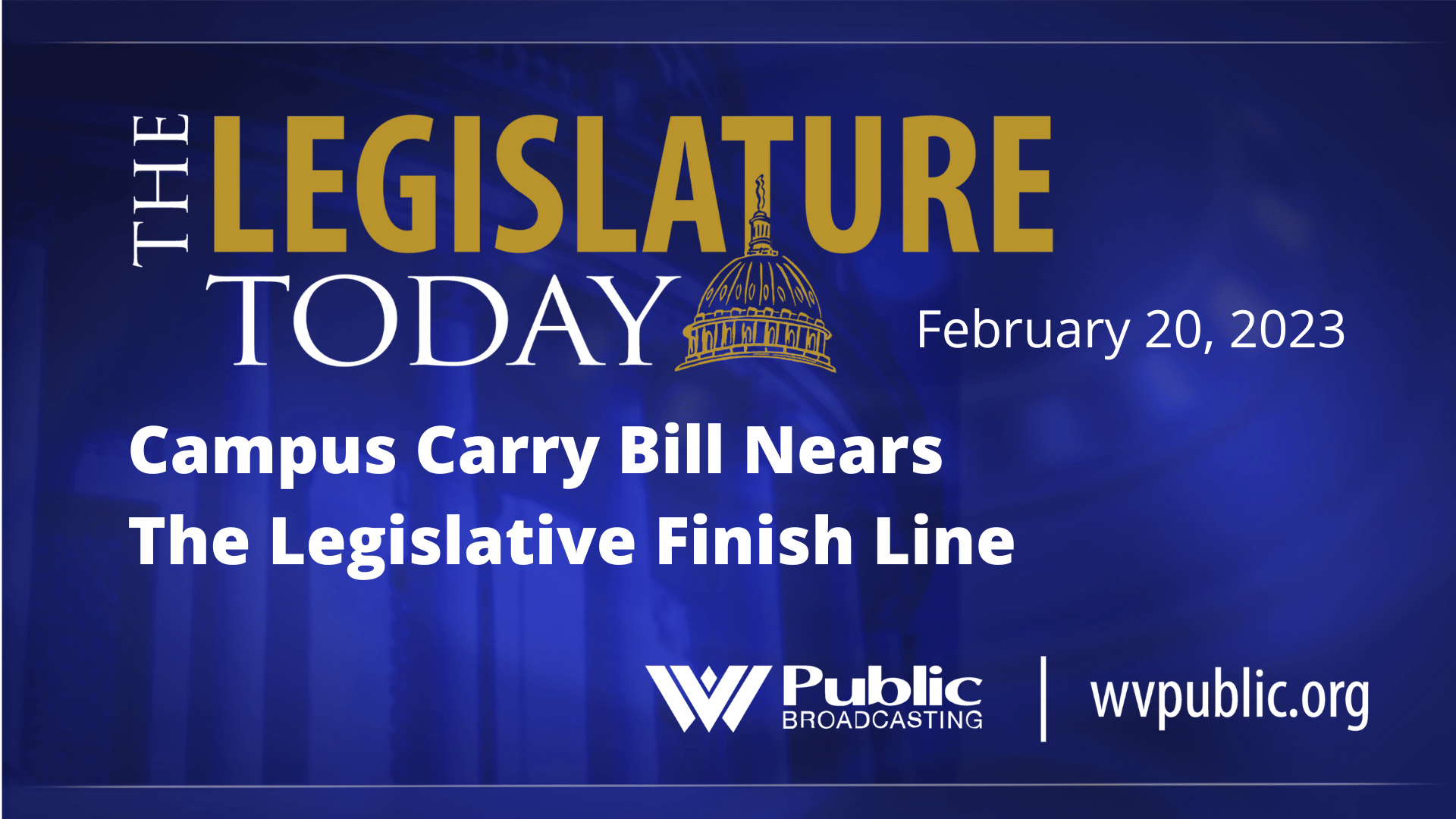On this episode of The Legislature Today, Senate Bill 10 is expected to pass the House of Delegates on Tuesday and head to Gov. Jim Justice for a signature. The bill would allow people with concealed carry permits to carry guns on college and university campuses. West Virginia University and Marshall, among others in the state, have spoken out against it. At a public hearing last week, 38 of the 40 speakers spoke against the bill.
Government Reporter Randy Yohe sat down with Del. Evan Hansen, D-Monongalia, and Sen. Mike Stuart, R-Kanawha, to get a better understanding on the bill.
Also, it was the 41st day of the 60-day West Virginia Legislative session, and it was also the last day to introduce bills in the Senate. The House passed that milestone last week.
The House of Delegates held a public hearing Monday morning. It was focused on a bill that would change the state’s workers compensation law limiting the penalties companies pay when a worker gets injured on the job. Randy Yohe has our report.
With the number of public high school students that decide to pursue college education seeing a noticeable decline over the past few years, legislators are trying to bolster post-secondary education numbers. Shepherd Snyder has more.
Finally, at the start of the session, House Speaker Roger Hanshaw said improving the state’s post-secondary attainment rate was a priority. Chris Schulz has more on where those proposals stand.
Having trouble viewing the video below? Click here to watch it on YouTube.
The Legislature Today is West Virginia’s only television/radio simulcast devoted to covering the state’s 60-day regular legislative session.
Watch or listen to new episodes Monday through Friday at 6 p.m. on West Virginia Public Broadcasting.
